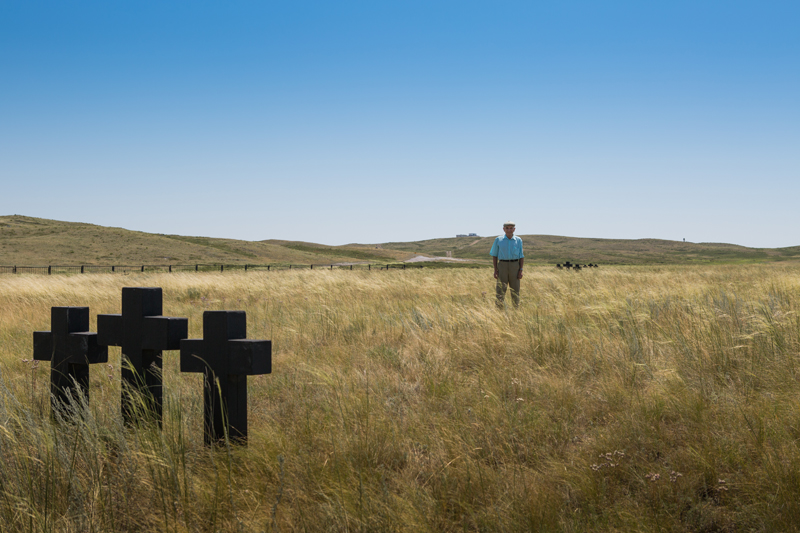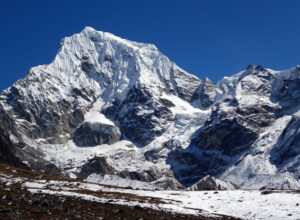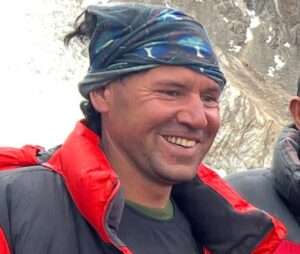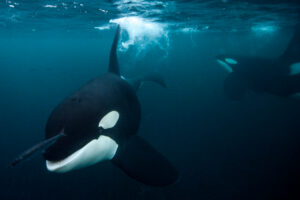When I got off the Aeroflot plane at Kastrup Airport, jumped on the busy underground train over the Strait Of Öresund back to my hometown of Malmö, I realized one thing:
“Life will never ever be the same again.”
All around me I had people who seemed to have very little perspective on true understanding of life. Everyone of them seemed to be lost in their own personal world and did their uttermost not to by disturbed by anything. I saw one middle aged couple who didn´t even move their feet or baggage when a young frustrated and flushed woman tried to pass them with a stroller. To avoid having to bother them to help her, she lifted her heavy stroller with two toddlers, but got stuck in a suitcase belonging to another upper middle aged couple. They hissed at the young woman and angrily pulled their suitcase closer to themselves. Nobody even cared to help her. Not one person in the carriage. At least until she had fought her way through the crowd and a young Arab looking man helped her negotiate a place to sit. Her toddlers were screaming their heads off. And, especially the middle aged people in the carriage, looked at her with distaste.
“Welcome back to Fucking Scandinavia” , I told myself and thought: “It will be harder than ever to return home this time.”
Kazakhs forced out of their culture, lifes b the Soviet cheka when they arrived and created a penal colony in Karaganda.
I felt like I was carrying the most important knowledge I have ever brought with me home from a journey, a deep insight into the most evil and the most kind sides of humankind. I had spent three weeks meeting some of the most extra ordinary people I have ever met, those who survived the most evil and repressive system ever forced up on humankind, the insane and the hight of true stupidity, Josef Stalin´s vast system of forced labor camps for internal exile and prisons which goes under the name of GULAG, which is an acronym from Glávnoe upravlénie ispravítelʾno-trudovýkh lageréĭ and translates pretty much as The Main Directorate of Corrective Labor Camps. Though I had read many books on the subject, like Aleksandr Solzhenytsin´s many literary works on the subject, other writers such as Janus Bardach, Varlam Sharlamov, Robert Conquest, Steven A. Barnes and many others, this time it felt like I had personally for a brief moment entered into this terrible time of history. I had spent almost all hours of 21 days in Karaganda, Kazakhstan, where the biggest penal colony of all, KARLAG, was situated. KARLAG means Karaganda Corrective Labor Camp. I spent this time together with the other members of the team. Theo, Ken, our great translator and now close friend, Yulija, our charismatic driver Valera and Nurshat, one of the bravest and most intelligent people I have ever met, who´s mother had been part of this evil history. Well, many people who we came across in Karaganda, had in one way or the other had their lifes affected by this crude decision by the paranoid dictator Josef Stalin and the henchmen around him, to dominate his own people and to force them into labor, as part of an economic idea, (which failed of course) not caring how many of them and their lives they completely ruined. That is still the truth for many today, almost 62 years after the death of the Georgian.
The knowledge and emotions I have brought with me home feel infinite. I realized there on the train, that it will always be very difficult for me to live in such a spoilt society as the one´s we have today in the West. When I looked at the people on the train and once I got off it, I stopped in the central hall and watched people before my happy family would turn up and meet me, and I didn´t see one person smiling or showing any kind of compassion for anything. All I saw was people who´s only focus seemed to be: Me, me, me. I eyed a book store from a distance and it seemed like the only books dealt with:
“Look at me, I want to show myself.”
I am one of them I know. But somehow I feel this journey to Kazakhstan has changed me profoundly forever. After listening to these extremely emotional stories from the survivors and meeting these always interesting people of the city of Karaganda, I realized why I have always loved my time in post-Soviet societies. People have gone through lots of pain and have perspective of life. And they seem to have the ability in general to put small matters into a bigger picture and not like us, who spend so much time on watching, reading and listening to utter nonsense. Well, this junk culture have affected the East as well. It is today a global problem, I believe. To quote the most important writer of our time, Aleksandr Solzhenytsin, maybe it is due to:
“…the general spiritual decline of humanity.”
Everyone of those we met, possibly with one exception, believed in a higher being. That was a real wake up call for me personally. I have only believed when I have been in trouble and have had no one else to turn to. And this time has taught me to fully understand why writers, film makers and so on in this part of the world, are so much better than we in the West to explain pain and love, the most evil to the best. So, today I worry how we as film makers can make these people justice since we have absolutely no perspective ourselves on pain and suffering in comparison. I thought I did, before, but that notion has been completely wied out now. I will never ever complain about anything again. Just relish the opportunity that my children have been given by being born in this priviliged world. But I need to see beyond the junk and nonsense of our time. Personally. For my girls sake.
I had intially feared the profound emotional hardship involved in meeting these amazing people who survived. I am very sensitive and stories like these have a tendency to make me a wreck for a long time. But as always, life taught me a harsh lesson for the better. Even though the interviews made us cry both on the outside and inside, it most of the time ended up us feeling positive and happy.Mainly because no matter how much hardships, and no matter for how many years, these people went through, they still came out being positive and in many circumstances, forgiving at the end. That was just an utter shock for me, who I imagine, would have felt a feeling of revenge. Some of them did, but with age and years gone by, they´re over 80 and instead come across as forgiving people. Though they all stated, that it would be weeks of pain and memories haunting them after the interviews, since they had to revisit the ordeal of life, death and pain. It would almost ruin them, but they still did the interviews, because they wanted their stories to hopefully lead to that nothing like this would ever happen again.
I was in quite in a daze when I first came back, almost blind for weeks until I started to open them again. The big Middle Eastern migration had arrived to Europe and this was a field day for those low cultured people who wanted nothing to do with other people, especially those who are different, but want to impose laws and a society of ignorance and fear. Like the Swedish Democrats and their ilk in the rest of Scandinavia and Europe. These people have learned nothing from our past and troubled recent history. And I realized what Aleksandr Solzhenytsin (yes, yes, he is my new hero!) said in a one of his last interviews, on the subject of being a creative person, a writer, a film maker or anyone within art, that he was right, because he said that we today create to sell, not to make a difference and only to please millions of people. People who haven´t the capacity to understand. And that fact is another piece of knowledge I bring back with me from Karaganda. Most people just don´t have the capacity to put things into perspective, the bigger picture, they just judge without any thought. Even though we have such a possibility to educate ourselves with the arrival of Internet and so on, it seems we are even getting dumber by the day. We even accept the existence of a political party basing their politics on hate and fear. And that makes me scared for the future, because another deep piece of knowledge I brought back from Karaganda, was the fact that the bolsheviks built their Soviet society on the most stupid people they could find in society. They got rid of the intellectuals, the educated and threw the terrible penal code of article 58 at them -traitors of the motherland- and those who came to power, where the dumbest, the most emotionally dead and the most unsensitive of all Soviets. Like most of the commanders and camp guards at KARLAG. And the other camps spread all over the Sovietunion during the Stalin era. That is one reason they were able to destroy the life´s of millions of people who had done absolutely nothing, but in many instances, where in the wrong place at the wrong time. Is that a society we want back?
Camp commander at KARLAG, smiling after destroying people´s life and for those of them who survived and are alive today, they blame the system that they were taught every day that those in camp where lower than animals. Or it was them or we. Photo copyright: Museum of Memory of the Victims of Repression
This visit have also pushed me in the direction of activism. For the future. We cannot allow this time happen again. But, even though we all got an inside into the darkest corners of human kind, undescribable evil, we came across the most positive aspects of life and humankind. The ability to survive, the ability to forgive and the ability to continue living with such enormous pain and suffering. They´re the strongest people I have ever come across. And, I was fortunate to come across a super team of people, thanks to Dr Nurlan Dulatbekov of the Bolashak University for his great help and support, from my partner of the documentary, the hard working, generous and very kind Theo, the ever analytical, funny and writing Ken, charming, hard working and strong minded Yuliya, the character of all characters, our driver Valera and Nurshat, one of the most impressive human beings I have ever met. Completely fearless.
Meet the most impressive of humans in a series of interviews and reflections coming up.






